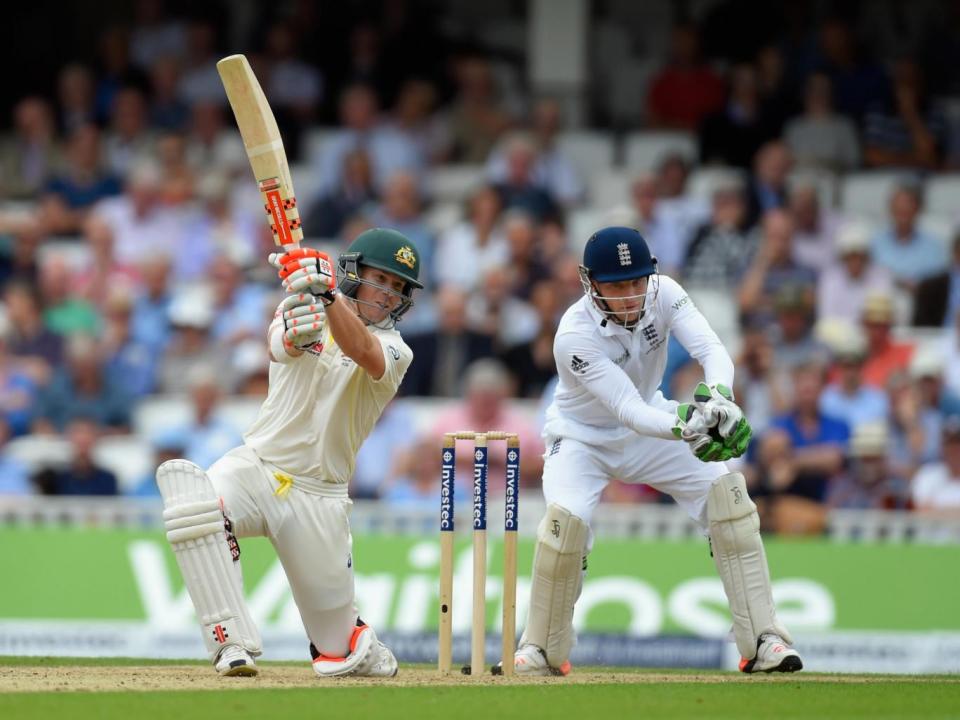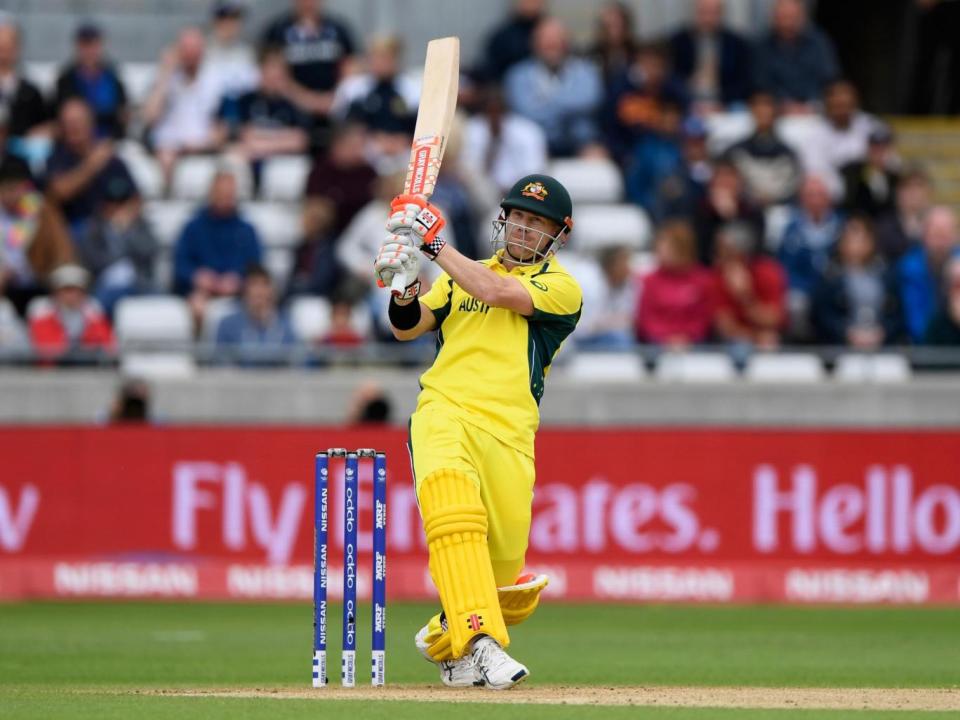How David Warner transformed himself from Walkabout bad boy to Australian statesman ahead of the Ashes

Given the speed of his transformation it’s possible to badge David Warner as world cricket’s equivalent of the 60-minute makeover.
The first Australian since 1877 to make his international debut before playing a First Class match has been labelled many things in his career – the vast majority of which aren’t publishable on the pages of The Independent – but, increasingly and against all odds, Warner is rapidly becoming something of a statesman-like figure Down Under.
So, when he talks of this winter’s Ashes series being akin to ‘war’, it’s probably wise for England’s finest to pack their hard-hats before they board the plane at Heathrow.
It wasn’t so long ago that the pugnacious left-hander was throwing right handers in the small hours at the Walkabout bar in Birmingham.
This summer, though, he was the Australian team’s go-to man in ill-tempered negotiations over the players’ future contracts.
And when the Aussies needed someone to shed their natural attacking instincts of take one for the team in Bangladesh, Warner stood up to register the slowest, but potentially one of the most crucial, centuries of his Test career in a winning cause.
That 123 in Chittagong – which followed a similarly single-minded century in the second innings of the first Test in Dhaka, which Australia lost – was the 20th of his Test career.
That puts him ahead of the likes of Mark Taylor, Bill Lawry and Ian Chappell in the Aussies all-time list. It also reaffirmed the view that, along with Steve Smith, his wicket will be the one that England covert above the rest this winter.
It’s all a far cry from the days when Warner was labelled a one-trick pony at the start of a career that has now seen him score almost 6000 Test runs at an average touching 48.
“He’s a cricketer who failed the eye test and probably still would,” says Trent Woodhill, the Aussie batting coach who has worked extensively with Warner since 2007.
“He was around the scene (at NSW) but he was stuck in that traditional mould. Someone had run the eye test over him and then said that he would have to improve if he was ever going to play red ball cricket.

“When he first came through, Twenty20 was still seen as a joke. There was nothing new about cricket, everyone was looking for the new Glenn McGrath, the new Shane Warne, the new Mark Taylor. Then along comes this pocket rocket who was so strong and just gave it to the bowlers.
“He just came from outside the traditional sanctum of Australian cricket.”
Warner’s Sheffield Shield debut eventually came two months after his Australian T20 bow. He came in at number six for New South Wales against Western Australia and scored 42 in traditionally breezy style.
What wasn’t so rapid was his elevation to the Australia Test side, which came almost two years later against New Zealand at the Gabba in Brisbane.
There was widespread head-scratching at the length of time he had to wait, particularly in India, where Warner had already established himself as one of the Indian Premier League’s most outstanding imports.

“Virender Sehwag saw him and said he could be anything he wanted to be,” says Woodhill, who worked alongside both Warner and Sehwag at the Delhi Daredevils. “He said he needed to open the batting because it was where he could cause most damage.
“I suppose, at that time, David really illustrated the changing face of cricket. It just took others in Australia and the Channel Nine commentary box longer to see it.”
His first brush with an English audience wasn’t quite as successful, with his Joe Root altercation leading to a suspension from the 2013 ICC Champions Trophy and causing him to miss the opening two Tests of an Ashes series that ended in a humbling series defeat for the tourists.
That incident remains a significant black mark on his career but proved to be a vital catalyst in his transformation from sporting bad boy to ambassador. It might also act as a timely reminder of cricket’s potentially restorative potential to Ben Stokes, who faces an uncertain winter after events in Bristol last month.
“David is one of those guys who says things that others are afraid to say and that hasn’t changed,” says Woodhill. “In the past, he has been used as a pawn for some people to do the rough and tumble stuff that others weren’t prepared to do themselves.
“I think the incident in 2013 was one of the main catalysts in his career. David plays the game hard but he also plays the game fair. It’s an easy roller-coaster ride to fall off of but he reset himself. For me, David’s a great person who has always had a very generous heart.”
That generosity is unlikely to extend to cutting England any slack this winter but that won’t come as any surprise to the likes of Alastair Cook, Stuart Broad, Jimmy Anderson and Root – players who know just how unforgiving an Ashes series can be.
Warner believes it’s ‘war’ as soon as the sides step over the boundary rope at the Gabba on November 23.
Like the Aussie left-hander, England must show they have the stomach for the fight.

 Yahoo Sport
Yahoo Sport 





































